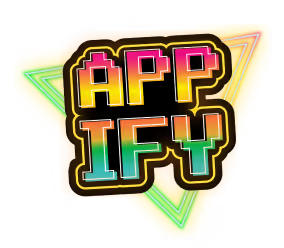AI-Driven Mental Health Apps: Transforming Wellbeing in the Digital Age
Introduction to Mental Health Technology Innovation
In today's rapidly evolving digital landscape, mental health technology is revolutionizing how Australians access psychological support and wellness resources. The emergence of innovative applications like Psyche represents a significant advancement in mental health app development, creating solutions that address the growing global mental health crisis, which has intensified during recent years. As specialists in custom app development with a focus on AI integration, we at Appify Australia recognize how these digital mental health tools are transforming traditional approaches to psychological wellbeing. This blog explores how cutting-edge mental health applications are leveraging artificial intelligence to deliver personalized therapeutic experiences that are accessible, effective, and scalable across the Australian market and beyond.
How AI is Revolutionizing Mental Health Applications
Modern mental health apps are distinguishing themselves through sophisticated AI integration that enables them to deliver highly personalized experiences. Unlike basic wellness apps that offer generic meditation or mood tracking, advanced mental health technology platforms use artificial intelligence to:
This AI-powered approach to mental wellbeing represents a fundamental shift in digital health solutions, creating virtual therapeutic experiences that can supplement traditional care models. The technology effectively democratizes access to mental health resources, which have historically been limited by cost, geographical constraints, and stigma.
The Core Features of Effective Mental Health Apps
Personalized User Experiences
Successful mental health app development centers on personalization as the cornerstone of effective digital intervention. Research indicates that personalized digital experiences result in significantly higher engagement and better outcomes compared to generic approaches. By implementing machine learning algorithms, these apps can:
Data-Driven Insights and Progress Tracking
A critical component of modern mental health technology is sophisticated data analytics that provides users with meaningful insights about their psychological patterns. These data-driven mental health tools enable:
Privacy and Ethical Considerations
While developing AI-driven mental health applications, maintaining robust data protection and ethical standards is non-negotiable. The most trusted mental health apps implement:
Building Mental Health Apps for the Australian Market
Understanding Local Mental Health Needs
When developing mental health technology for Australian users, it's essential to consider the unique aspects of the local context:
Technical Implementation Considerations
From our experience at Appify Australia, successful mental health app development requires careful attention to:
The Future of AI in Mental Health Technology
The trajectory of mental health app development points toward increasingly sophisticated AI integration that will transform digital therapeutic approaches. Future developments are likely to include:
As digital health solutions continue to evolve, our development team remains committed to creating mental health applications that balance technological innovation with evidence-based psychological approaches.
Conclusion: Embracing the Digital Mental Health Revolution
The emergence of AI-driven mental health apps represents a pivotal moment in how we approach psychological wellbeing in the digital age. These technologies don't replace professional mental healthcare but instead create accessible entry points and ongoing support for millions who might otherwise go without assistance. By continuing to refine and develop these digital mental health tools with sensitivity to both technological possibilities and human needs, we can create a future where mental wellbeing is supported by personalized, accessible, and effective digital solutions.
For organizations looking to make an impact in this space, partnering with experienced app developers who understand both the technical requirements and psychological nuances of mental health applications is essential for creating solutions that truly transform lives.
.png)
.png)
.png)
.avif)
.png)

.png)






